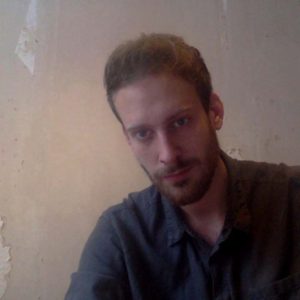
Christian Schwinghammer
The current renegotiation of ontology has a crucial trait in its handling of the idea of indeterminacy. As a signature for fundamental non-fixedness, openness and changeability, indeterminacy is increasingly being relocated to the nature of reality in general, especially in the course of neo-materialistic upheavals in humanities and a rehabilitated orientation towards scientific insights. A structural incompleteness of things and bodies is affirmed, not infrequently, as, for example, in Karen Barad’s quantum addressing of ‘nothing’, through an emphasis on the generativity and potentiality of matter itself. This results in a posthumanistic insecurity, which is still the social-theoretical contingency thesis negotiated on a different basis and with changed ontological standards. The critical commitment associated with such a postulate of indeterminacy becomes clear in the translation of age-theoretical considerations. The claim of an incommensurable, unfathomable, even indefinite ‘other’ in relation to sovereign disposition is to be obtained here with the assumption of cross-species potential for becoming: through an uncontrollable ‘more’ that is inscribed in the constitution of all beings beyond their specific manifestation. The current ontologization of indeterminacy is thus decisive for the idea of an open, more-than-human relationality, and consequently also for the revitalized idea of preconscious intimacy and sociality as well as the creation of meaning and sensuality apart from a self-confident human. It thus implies ethical and political volts, the implications of which are to be questioned – also in their positioning as an adequate answer to current situations in the form of crises and catastrophes, as well as to an inseparable technological penetration of existence, the world and nature. The dissertation project will accordingly investigate the (imagination) potential of indefiniteness along the lines of humanities, social and media sciences as well as biological and quantum theoretical debates. In terms of strategic realism, the forms and modalities, locations and scales of indeterminacy listed should be asked about their critical thrust, not least in the light of refined (bio) political addressing of the living. The goal is to outline a vagueness thinking that can meet the demands of alterity in the presence of techno-scientifically changed relationships of self and world.
Research focus
Renegotiations of ontology and metaphysics, post-structuralism, 20th century philosophies of alterity and difference, theories of body and affect, philosophy of technology and media aesthetics
Christian Schwinghammer studied political science with a focus on political theory at the Free University of Berlin. In his thesis he dealt with the subject of ‘ontological politics’ with reference to the philosophies of difference of the 20th century, post-fundamentalist perspectives and theories of New Materialism. Since autumn 2018 he has been a doctoral student at the research college SENSING: The Knowledge of Sensitive Media at the Brandenburg Center for Media Studies (ZeM). His research interests include current renegotiations of ontology and metaphysics, post-structuralism, philosophies of alterity and difference of the 20th century, theories of body and affect, philosophy of technology and media aesthetics.






